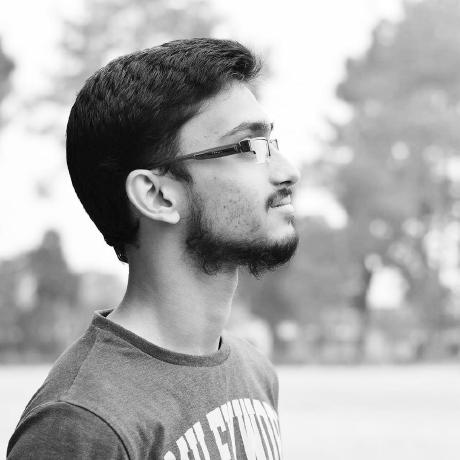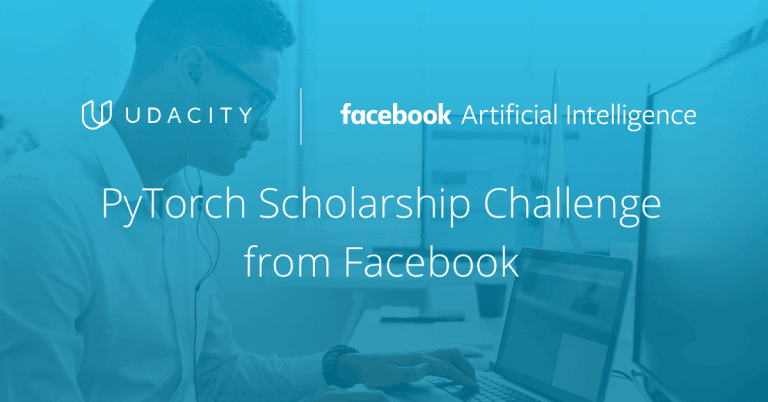PyTorch Scholarship Challenge from Facebook
 Aadam
Aadam
I got accepted into the PyTorch Scholarship Challenge program, offered by Facebook, which focuses on teaching Deep Learning using the PyTorch framework.
There were two phases of this challenge. In Phase 1, they selected about 10,000 students worldwide to participate in the challenge. Out of those 10,000 students, only 300 would be selected for Phase 2, in which they’d have access to the complete Deep Learning Nanodegree for free.
As I was planning to learn the Pytorch framework and was looking for some amazing tutorials to get started, naturally I was very excited when I got selected for the Pytorch Scholarship Challenge Phase 1. My previous experience with Udacity’s Nanodegree programs was very rewarding in which I completed 3 Nanodegree programs, namely Machine Learning Engineer, Android Basics, and Android Developer. But that was before they changed their pricing model, from a monthly subscription to a one-time up-front payment system. After that, they also changed their teaching methods somewhat and instead of self-paced learning, they turned these Nanodegree programs into a schedule-based class type program. I wasn’t sure if I’d enjoy this as much, but I did, a lot.
The video content of the program was absolutely amazing, as always. The production quality, the teaching efficiency, the animations to easily understand the content, the topic selection, everything was spot on. The programming exercises also helped cement what we learned in the class. The final challenge made us realize how much we actually understood the concepts and techniques taught in the course.
It was a fun experience. Now, all this, I expected beforehand, nothing extraordinary. This is all very great of course, but it wasn’t the main thing that blew my mind. What made this a memorable experience and quite unique frankly, was the social aspect and the engagement with the community. From the start of the class, the Udacity team created a Slack workspace for the participants of this challenge and encouraged everyone to participate in group discussions. There was a Facebook group as well, but I mostly used the Slack workspace, and I think so did most of the other students because it was fairly active all the time. It was hard to keep track of all the things and activities going on at a given moment but still, it was manageable.
A team of TAs and volunteers were always present to solve the queries of the students and help them out if they were struggling with something, be it a concept taught in the course, a program, an environment error, cutting-edge new research, and so on. I mean there were always interesting and informative conversations happening and the vibe of the whole community was very positive.
They also took several initiatives to further help the community, like Study Buddy, Mentor-ship program, study groups, workshops, etc. Many study groups were made, based on the interests of the students, their geographical location, etc. Every weekend, the members of the study group would meet, either locally or through hangout, if they’re far apart, and discuss what they learned, ask questions, and help out each other. They would later on post their group selfies on the Facebook group which also motivated others to do so. You know how people are these days 😉
A number of extra workshops were held as well, both by Udacity professionals as well as the student participants of the program. They would cover a wide range of topics. Some would explain the concepts taught in the course that the students were having a hard time understanding. Some would show how to debug or troubleshoot a certain kind of problem that the students are having. Some would explain other interesting topics, not covered in the course. Everybody was willing to help out each other and in the process, learn and grow, together as a community.
This social engagement aspect made a very positive impact on me. This will definitely be one of the most memorable and rewarding experiences of my life, given the toxicity of most of the online communities.
I have good news as well, great news in fact. I got accepted into the Phase 2 program. I will be able to complete the Deep Learning Nanodegree program, which I was very very eager to do, but couldn’t afford. I am planning to blog about my experience with the Nanodegree as well as the content that I learn there. So, look out for some amazing tutorials and blog posts on Deep Learning, and stay tuned. Wish me luck 🙂
Subscribe to my newsletter
Read articles from Aadam directly inside your inbox. Subscribe to the newsletter, and don't miss out.
Written by

Aadam
Aadam
Full Stack Developer. Likes to dabble in AI, Quantum Computing, Reinforcement Learning, and more.